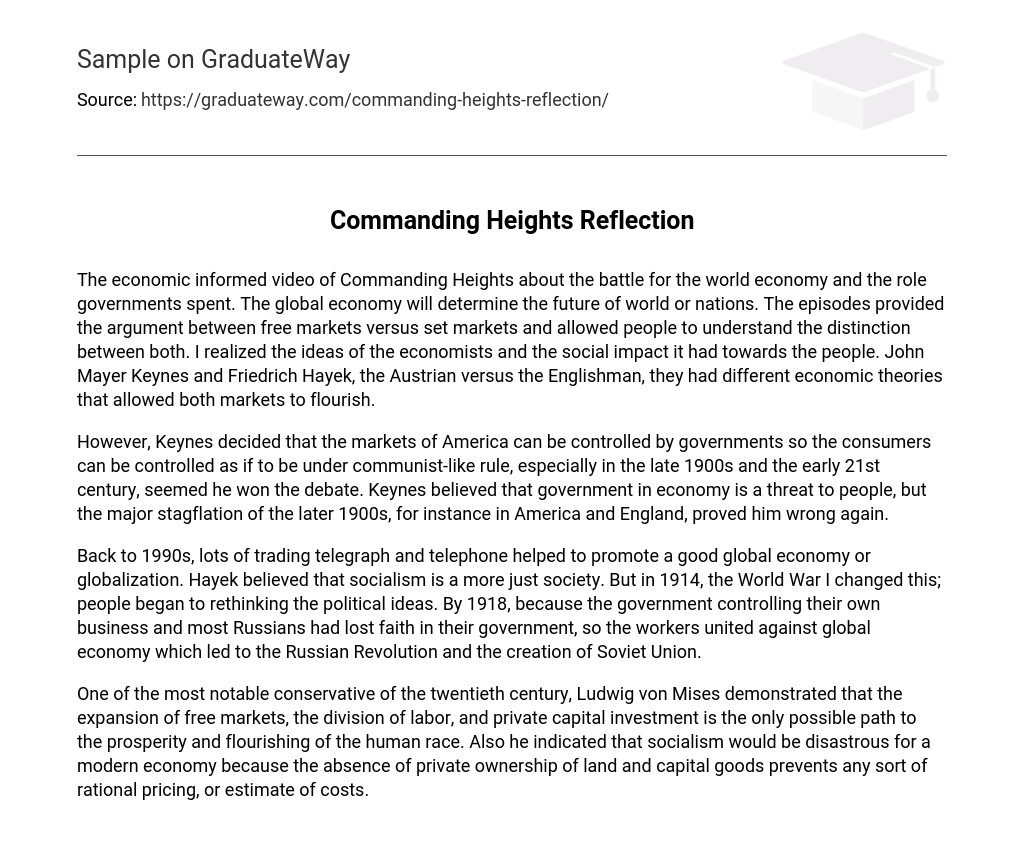The video “Commanding Heights” is an enlightening resource on the battle for the world economy and the role of governments. It highlights the crucial connection between the global economy and the destiny of nations. Interestingly, this series delves into the debate surrounding free markets versus regulated markets, revealing significant contrasts between the two. Moreover, it emphasizes the impact of economists’ ideas on society. Notably, it explores the opposing economic theories of John Mayer Keynes and Friedrich Hayek, representing Austria and England respectively, which have fostered the growth of both market systems.
But Keynes contended that the markets in America could be regulated by governments to control consumers, similar to a communist rule. This viewpoint became popular in the late 1900s and early 21st century. Keynes recognized that government intervention in the economy threatened individuals. However, the occurrence of significant stagflation in countries such as America and England later on contradicted his position once more.
During the 1990s, globalization (the global economy) greatly benefited from the widespread use of telegraph and telephone technologies in trading. Hayek believed that socialism is vital for creating a more equitable society. However, the outbreak of World War I in 1914 caused a reevaluation of political ideologies. By 1918, Russians opposed the global economy due to government interference in economics and a general distrust in their government. These factors ultimately led to the Russian Revolution and the formation of the Soviet Union.
Ludwig von Mises, an influential figure in twentieth-century conservatism, advocated for the growth of free markets, division of labor, and private investment in capital as essential for human progress and prosperity. He cautioned against socialism because it lacks private ownership of land and capital goods, leading to irrational pricing and cost estimations that would harm a modern economy.





